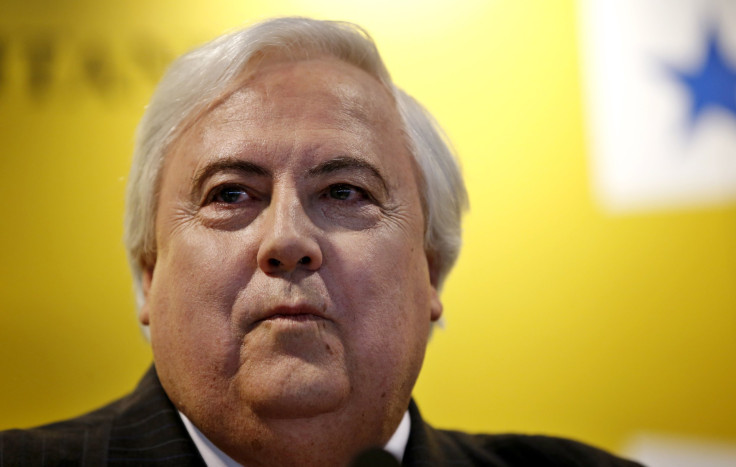Queensland Nickel administrators, FTI Consulting, accuse Clive Palmer of reckless behaviour following QN's collapse

The administrators investigating Clive Palmer’s Queensland Nickel (QN) have found that - contrary to his denials - he acted as a “shadow director” of the failed enterprise. They have also accused him of behaving “recklessly” and perhaps illegally.
In a damning report the administrators, FTI Consulting, recommend QN be wound up. The company’s collapse cost some 800 jobs.
An embattled Palmer again defended himself in the media on Tuesday including a shouting match with David Koch on Seven’s Sunrise, during which he accused the press of running wild.
Prime Minister Malcolm Turnbull predicted that “assuming he renominates…the electors of Fairfax will cast a very stern judgement on him”.
A “shadow” or de facto director owes the same duties to the company as a formally-appointed director, being someone who has the potential to control a company’s decisions and exercises that power.
Rejecting that he was a shadow director, Palmer said he was a member of the committee of the joint venture – that he owns - to which QN was responsible. This committee approved QN’s spending decisions.
But the administrators say: “Our observations indicate Mr Palmer, a former director of the company, appears to have acted as a shadow/de factor director of QN at all material times from February 2012 up to the date of our appointment on 18 January 2016”, except when he held tenure as a director.
Palmer was a director from July 31, 2009 to January 30, 2013, April 17, 2013 to April 5, 2014, and January 22, 2015 to February 16, 2015.
“Mr Palmer’s official roles have otherwise been limited to his directorship and shareholdings in related entities and their subsidiaries,” the report says.
Despite this, Palmer was a current signatory on three bank accounts in QN’s name, with the capacity to authorise transactions on these accounts solely and independently of the other authorised signatories, the report says.
“Mr Palmer formed part of QN’s expenditure approval process committee as ‘chairman’ and held the highest level of authority. This level of approval is required for all expenditure requests with a value greater than $10,000.”
The report says that from May 2014 and at all material times up to January 18 this year – excluding his third period as an appointed director – Palmer exercised powers in controlling the decisions of the company including by approving or rejecting spending requests, and dealing with company staff in day-to-day operational matters.
QN’s managing director, Clive Mensink, is Palmer’s nephew, who is also accused of acting recklessly.
The administrators list the circumstances that may contain possible offences committed by the company’s directors. Among them are that:
- they directed and/or authorised QN to enter into transactions with related parties which do not appear to have been in its best interests;
- they failed to avoid conflict between the interests of QN and their personal interests;
- their actions appeared to have caused QN significant detriment, having potentially appropriated assets ordinarily available to QN.
“Both Mr Mensink and Mr Palmer, in our view, appear to have been reckless, in exercising their duties and powers as directors of QN.
“Ultimately, the determination of whether the directors have breached their duties will be made by a court.”
The report says that since 2013, QN had made about $21.5 million in contributions to the Palmer United Party, including more than $15 million in the financial year 2014 and nearly $6 million in financial year 2015.
“We have observed, in both FY2014 and FY2015, QN contributed over 27% of the nation’s total donations to all Australian political parties as disclosed with the Australian Electoral Commission, including the two major parties.
“Further, QN contributed 58% and 61% of PUP’s total donations in FY2014 and FY2015 respectively, with PUP having received at least 45% of the nation’s total donations in each of the same year.
“It is our view the donations made by QN to PUP have appropriated assets otherwise available to QN and its creditors for the benefit of a director-related entities, and because of these transactions, caused detriment to QN.”
![]()
Michelle Grattan, Professorial Fellow, University of Canberra





















